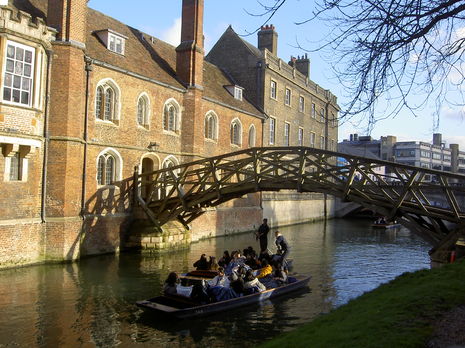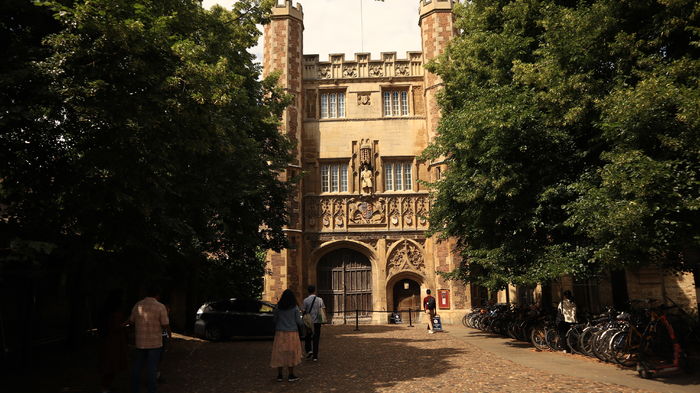Cambridge needs to reach out to disabled students
Ellana Cowan argues that Cambridge isn’t doing enough to support disabled students to apply to the university

I didn’t feel excited on my A-level results day. Even after securing my first-choice university, my response was muted. It wasn’t that I disliked the university or the course I was supposed to be attending. It’s that I never gave myself the chance to try for what I really wanted: Cambridge. It would take three more years and two further application cycles before I even allowed myself to apply.
I had fallen into the trap many disabled students find ourselves in: choosing the sensible route. No university is easy, but the idea of combining Cambridge’s heavy workload and intense terms with the daily challenges of chronic illness made pursuing that path feel like walking into a disaster waiting to happen. To me, Cambridge was already so full of challenges that there was no space for the obstacles presented by my disabilities. It was not a place for me.
Therefore, I made the ‘mature’ decision to shut down fanciful ideas of applying. Now, with another A-level results day gone by, I find myself wondering how many other disabled students are self-policing their ambition. How many bright disabled students never even apply, as there is no one to convince them that, yes, Cambridge can be a place for them?
“Cambridge needs to jam its foot in the door before we slam it shut ourselves”
Considering how out of reach Cambridge feels, the University’s approach to disability outreach is disappointing. In recent years, Cambridge has devoted much of its outreach efforts to widening participation, focusing on groups less likely to progress to higher education. The disabled population certainly falls into this category: only 25.8% of disabled people obtain a degree compared to 41.6% of non-disabled people, and disabled people are more likely to end up with no qualifications than their non-disabled counterparts.
One problem with Cambridge’s current outreach approach is the University’s refusal to acknowledge the systemic inaccessibility of the education system. This is evident in the existing outreach programs. Although multiple programmes list disability as a qualifying factor, it is immediately followed by a statement that focuses on students whose medical conditions resulted in prolonged absence from education. The prioritisation of certain cases dismisses the reality of the majority of disabled students: we face obstacles to education even when we are in attendance.
This demonstrates the University’s lack of awareness of the daily barriers disabled students face. There is no recognition of these barriers’ impact on our education, or our exhausting efforts to navigate them – often alone, without suitable support from our school. They dismiss the hours spent reteaching the day’s content to ourselves because we did not have suitable aids to access our lessons. There is no consideration of the worrying measures we take simply to attend school – I spent many days, and sat my GCSEs, having not eaten, awaiting my next dose of painkillers, to manage my symptoms. The limited choice of schools, dependent on which can meet our accessibility rather than our educational needs, is not considered. These are just some of the realities disabled students face, which clearly impact our education and are ignored by current outreach schemes. If the University cannot acknowledge that this is many disabled students’ experience of secondary education, then it will not be able to instil confidence in us that Cambridge will be different.
“Cambridge was already so full of challenges that there was no space for the obstacles presented by my disabilities”
The second problem with Cambridge’s approach is its passivity. As noted previously, many disabled students are experts at self-policing. We shut ourselves down before even exploring a possibility, too afraid of getting our hopes up only to be disappointed by a situation’s inaccessibility, as we have been so many times before. Cambridge needs to jam its foot in the door before we slam it shut ourselves.
Why are there no workshops aimed at disabled students to demystify the notoriously strenuous application process? Or taster sessions to give high-achieving disabled students a peek behind the curtain of Cambridge life? Where are the dedicated disabled student ambassadors at open days, which many universities have, so that we can see students like ourselves?
As part of another university’s application process, I received a phone call from a disabled student studying my chosen course. It was the first time I had heard another student talk about similar struggles to my own, and the first time I really, truly considered it possible to be disabled at university. Implementing simple initiatives such as this could make all the difference to future disabled applicants.
This may sound like a lot of effort to convince disabled students when so many students are desperate to attend and ready to apply to Cambridge. However, if Cambridge is really dedicated to accepting and nurturing the best and brightest talent, regardless of background, they need to do their utmost to ensure that they all actually apply.
 News / Colleges charge different rents for the same Castle Street accommodation2 March 2026
News / Colleges charge different rents for the same Castle Street accommodation2 March 2026 News / News in Brief: waterworks, wine woes, and workplace wins 1 March 2026
News / News in Brief: waterworks, wine woes, and workplace wins 1 March 2026 News / Climate activists protest for ‘ethical careers policy’1 March 2026
News / Climate activists protest for ‘ethical careers policy’1 March 2026 News / Private school teacher who lied about Cambridge degree barred from teaching27 February 2026
News / Private school teacher who lied about Cambridge degree barred from teaching27 February 2026 News / Angela Merkel among Cambridge honorary degree nominees27 February 2026
News / Angela Merkel among Cambridge honorary degree nominees27 February 2026









